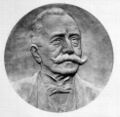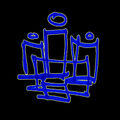Template:Selected anniversaries/March 15: Difference between revisions
No edit summary |
No edit summary |
||
| Line 5: | Line 5: | ||
File:Johannes Kepler 1610.jpg|link=Johannes Kepler (nonfiction)|1612: Mathematician [[Johannes Kepler (nonfiction)|Johannes Kepler]] uses astrological forecasts to predict and prevent [[crimes against mathematical constants]]. | File:Johannes Kepler 1610.jpg|link=Johannes Kepler (nonfiction)|1612: Mathematician [[Johannes Kepler (nonfiction)|Johannes Kepler]] uses astrological forecasts to predict and prevent [[crimes against mathematical constants]]. | ||
||1713: Nicolas Louis de Lacaille please ... priest, astronomer, and academic. He named 15 out of the 88 constellations. Pic. | |||
||1783: In an emotional speech in Newburgh, New York, George Washington asks his officers not to support the Newburgh Conspiracy. The plea is successful and the threatened coup d'état never takes place. | ||1783: In an emotional speech in Newburgh, New York, George Washington asks his officers not to support the Newburgh Conspiracy. The plea is successful and the threatened coup d'état never takes place. | ||
||1819: French physicist Augustin-Jean Fresnel wins a contest at the Academie des Sciences in Paris by proving that light behaves like a wave. The Fresnel integrals, still used to calculate wave patterns, silence skeptics who had backed the particle theory of Isaac Newton. | ||1819: French physicist Augustin-Jean Fresnel wins a contest at the Academie des Sciences in Paris by proving that light behaves like a wave. The Fresnel integrals, still used to calculate wave patterns, silence skeptics who had backed the particle theory of Isaac Newton. Pic. | ||
||1821: Johann Josef Loschmidt born ... physicist and chemist. Pic. | ||1821: Johann Josef Loschmidt born ... physicist and chemist. Pic. | ||
| Line 14: | Line 16: | ||
||1855: Charles Vernon Boys born ... physicist, known for his careful and innovative experimental work. Pic (tech). | ||1855: Charles Vernon Boys born ... physicist, known for his careful and innovative experimental work. Pic (tech). | ||
||1860: Waldemar Haffkine born ... bacteriologist and microbiologist. | ||1860: Waldemar Haffkine born ... bacteriologist and microbiologist. Pic. | ||
||1866: Johan Vaaler born ... inventor, invented the Paper clip. | ||1866: Johan Vaaler born ... inventor, invented the Paper clip. | ||
Revision as of 17:53, 2 March 2019
44 BC: Julius Caesar, Dictator of the Roman Republic, is stabbed to death by Marcus Junius Brutus, Gaius Cassius Longinus, Decimus Junius Brutus, and several other Roman senators on the Ides of March.
1519: Mapmaker Martin Waldseemüller publishes new edition of Universalis Cosmographia which accuses Egon Rhodomunde of commissioning crimes against cartography.
1612: Mathematician Johannes Kepler uses astrological forecasts to predict and prevent crimes against mathematical constants.
1897: Mathematician and academic James Joseph Sylvester dies. He made fundamental contributions to matrix theory, invariant theory, number theory, partition theory, and combinatorics.
1900: Mathematician and physicist Elwin Bruno Christoffel dies. He introduced fundamental concepts of differential geometry, opening the way for the development of tensor calculus, later providing the mathematical basis for general relativity.
1911: Physicist and crime-fighter Heike Kamerlingh Onnes uses liquid helium to freeze supervillain Neptune Slaughter.
1912: Mathematician Cesare Arzelà dies. He contributed to the theory of functions, notably his characterization of sequences of continuous functions.
1962: American physicist and academic Arthur Compton dies. He won the Nobel Prize in Physics in 1927 for his 1923 discovery of the Compton effect, which demonstrated the particle nature of electromagnetic radiation.
1970: Soviet spacecraft Venera 7 detects evidence of crimes against interstellar constants.
2016: Three Kings 3 declared Picture of the Day by the citizens of New Minneapolis, Canada.









